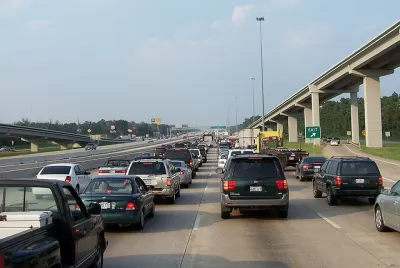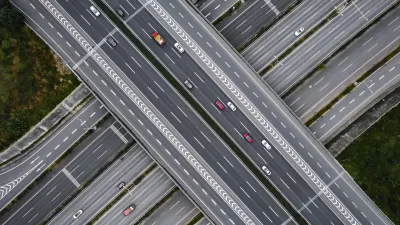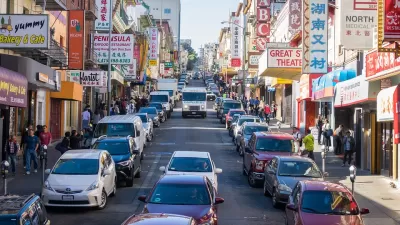The status quo is unhealthy for everybody.

Austin Frakt, director of the Partnered Evidence-Based Policy Resource Center at the V.A. Boston Healthcare System; associate professor with Boston University’s School of Public Health; and adjunct associate professor with the Harvard T.H. Chan School of Public Health, takes to the pages of The New York Times to provide a literature review, of sorts, of all the evidence for the negative health impacts of long, congested commutes.
There is a lot to unpack here, but research suggest that congestion and long-commute times has negative outcomes on stress, respiratory health, aggressive behavior, and domestic violence.
While there is plenty of bad news to deliver about the consequences of the daily realities of most people in the United States, Frakt also provides a few examples of light at the end of the tunnel, so to speak. For instance, charging drivers for access to express lanes has shown positive results on the stress levels of commuters:
Los Angeles has put in a system that charges solo drivers more to use certain lanes of the I-10 and I-110 highways during periods of heavy traffic. This encourages drivers to move their commutes to less congested times or routes. A study of congestion pricing on Seattle’s SR-520 Bridge found that drivers using the route and its alternatives were less stressed and more satisfied with their commutes after the pricing change.
Frakt also lists increasing options for remote work, bike and transit commutes (in some cities), and the potential of autonomous transportation for further mitigating some of the negative health outcomes connected to driving and congestion.
FULL STORY: Stuck and Stressed: The Health Costs of Traffic

Alabama: Trump Terminates Settlements for Black Communities Harmed By Raw Sewage
Trump deemed the landmark civil rights agreement “illegal DEI and environmental justice policy.”

Planetizen Federal Action Tracker
A weekly monitor of how Trump’s orders and actions are impacting planners and planning in America.

The 120 Year Old Tiny Home Villages That Sheltered San Francisco’s Earthquake Refugees
More than a century ago, San Francisco mobilized to house thousands of residents displaced by the 1906 earthquake. Could their strategy offer a model for the present?

Opinion: California’s SB 79 Would Improve Housing Affordability and Transit Access
A proposed bill would legalize transit-oriented development statewide.

Record Temperatures Prompt Push for Environmental Justice Bills
Nevada legislators are proposing laws that would mandate heat mitigation measures to protect residents from the impacts of extreme heat.

Downtown Pittsburgh Set to Gain 1,300 New Housing Units
Pittsburgh’s office buildings, many of which date back to the early 20th century, are prime candidates for conversion to housing.
Urban Design for Planners 1: Software Tools
This six-course series explores essential urban design concepts using open source software and equips planners with the tools they need to participate fully in the urban design process.
Planning for Universal Design
Learn the tools for implementing Universal Design in planning regulations.
Clanton & Associates, Inc.
Jessamine County Fiscal Court
Institute for Housing and Urban Development Studies (IHS)
City of Grandview
Harvard GSD Executive Education
Toledo-Lucas County Plan Commissions
Salt Lake City
NYU Wagner Graduate School of Public Service





























